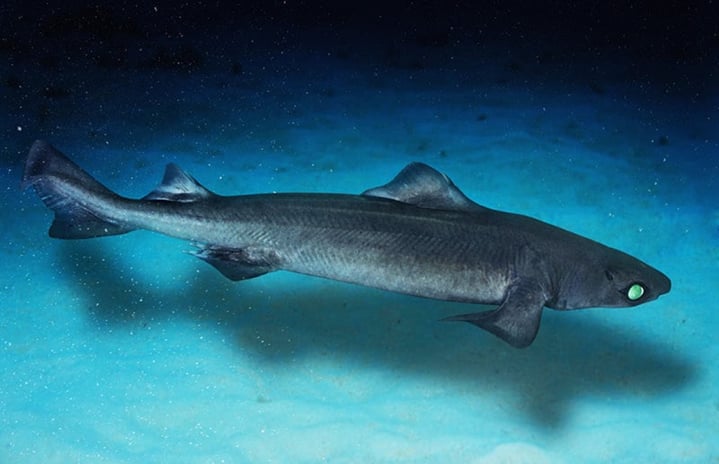Despite ongoing opposition, the government has legalized gulper shark
fishing and today published the relevant regulations. The government had
previously announced its decision to permit gulper shark fishing in the
Maldives starting next month.
Consequently, the Ministry of Fisheries has
amended and published the regulations governing shark fishing. The third
amendment to the "Maldives Fisheries General Regulation" changes the
list of species that are prohibited from being caught, taken, or killed within
Maldivian waters. The latest change specifies that all shark species except
gulper shark remain prohibited. Alongside this amendment, the Ministry of
Fisheries has also published the Regulation on Organizing, Operating, and
Monitoring Gulper Shark Fishing and the Maldives Gulper Shark Fishery
Management Plan.
The new regulation requires the Minister to form a 13-member committee
within six months of the regulation coming into effect to advise on the
Management Plan. This committee must include representatives from the Fisheries
Department (as Chair), the Ministry's Fisheries Compliance Section, the
Maldives Marine Research Institute, two representatives each from sharpnose shark fishers, processors/exporters, and the Ministry of Environment, one
representative each from the LGA, Police, and Customs, and two locally
registered NGOs working on marine conservation and fisheries.
According to the Management Plan, engaging in gulper shark fishing and
its trade requires a special license issued by the Ministry, with a maximum of 40
vessels being issued licenses.
The Ministry stated that if applications exceed
the allocated number of licenses, applicants will be registered and prioritized
based on the order in which they applied. The license will be valid from November
through the end of the following October. Fishing will only be permitted in
areas outside the atoll lagoons for a non-continuous period of no more than
seven months each year, as announced by the Ministry.
Violations of the
regulation, specifically fishing in prohibited areas, will result in a fine of MVR
100,000 for the captain and the license holder. Repeat offenses will incur an
additional MVR 50,000, with fines reaching up to MVR 400,000.
In the introduction to the Management Plan, Fisheries Minister Ahmed Shiyam
stated that the decline in shark fisheries and global conservation efforts had
led Maldivian fishers to voluntarily stop shark fishing for two years.
However,
Shiyam noted that the previous shark fishing practices were not structured or
systematic. The Minister emphasized that developing and diversifying the
fisheries sector is a priority for President Dr. Mohamed Muizzu, and one of the
ways the government is diversifying the sector is by reviving gulper shark
fishing, a practice traditionally undertaken by Maldivians.
Shiyam explained: "the gulper shark Fishery Management Plan has been developed to ensure
the gulper shark fishery in the Maldives is conducted in a sustainable,
eco-friendly, and fully beneficial manner. Crucially, it is structured to be
monitored, involve multiple stakeholders, and ensure that the benefits derived
from this common resource, like sharks, do not diminish the benefits received
by others relying on it."
Shark fishing was widely practiced in the Maldives until it was completely banned
in 2010 under the administration of former President Mohamed Nasheed.
However,
in a meeting in August with residents of Hdh. Kulhudhuffushi, historically a
major shark fishing hub, President Muizzu announced preparations to re-legalize
gulper shark fishing from tomorrow onwards.
This move has prompted local and
international conservation NGOs advocating for marine protection to call on the
government to reconsider its decision. A petition from these groups argued that
maintaining the ban on shark fishing enhances the Maldives' international
reputation and strengthens its advocacy position in global forums regarding
climate change.
Furthermore, the petition warned that re-legalizing shark
fishing poses a negative impact not only on the environment but also on the Maldivian
economy and the benefits derived from it, which is heavily reliant on tourism.




